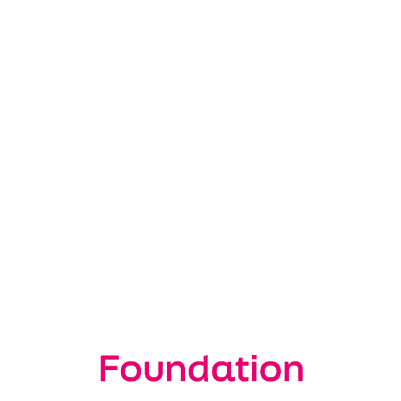Engineering a safer world
Lloyd's Register Foundation Strategy 2024-2029

A message from our
Chief Executive
Ruth Boumphrey, Lloyd's Register Foundation
Lloyd’s Register Foundation has come a long way since its creation in 2012. As a Foundation, we take a long-term view, and so in developing our strategy for 2024- 2029, we are building on - and learning from - our work to date, focusing our areas of action, and scaling our impact to make a real difference.
We will deliver our strategy in the context of a rapidly changing world. Although we are working hard to decarbonise our energy systems, we are seeing the effects of a changing climate all around us. We must make sure that our infrastructure is resilient to these changes because our growing global population is dependent on this critical lifeline infrastructure to provide water, food, energy, communication, and transportation.
The next stage of our journey will see us focus more of our resources in areas where we can make a distinctive difference, to where safety is most needed, and to listening to those whose safety is most affected. With this in mind, we will increasingly move towards locally and end-user led initiatives and partnerships, and towards activities, geographies and technologies where rapid change provides the opportunity for transformative safety interventions, which you will read more about in this document.
Our strategy explains our investment priorities and the changes we would like to see as a result of our work and funding. In addition, in delivering our strategy we are committed to modernising our digital estate; to providing better access to our
physical assets such as our archive, our library and our heritage building; and to supporting diversity and inclusion.
We are passionate about what we do, and we work with remarkable partners from all around the world who share our values and our vision. I hope you will join us in the next stage of our journey to Engineer a Safer World.
About the Foundation
Lloyd’s Register Foundation is a global safety charity with a mission to Engineer a Safer World.
Building on the Foundation’s partnerships and impact to date, and harnessing over 250 years of maritime safety knowledge, we focus on enhancing the safety of life and property through the development of standards and education.
The Foundation has a unique structure. Our income comes from dividends through our investments, and from Lloyd’s Register Group (LR), a global trading company. As well as financial contributions, LR is a global provider of safety services, that aligns to our mission. Plus, we draw on LR’s knowledge, networks, and expertise to drive more impact through our work.
Our vision
Our vision is to be known worldwide as a leading supporter of engineering-related research, training and education, which makes a real difference in improving the safety of people and the critical infrastructure on which modern society relies.
Our charitable purpose
Our charitable purpose is the basis for our mission; to Engineer a Safer World. Our purpose is:
- To secure for the benefit of the community high technical standards of design, manufacture, construction, maintenance, operation and performance for the purpose of enhancing the safety of life and property at sea, on land and in the air.
- The advancement of public education including within the transportation industries and any other engineering and technological disciplines.
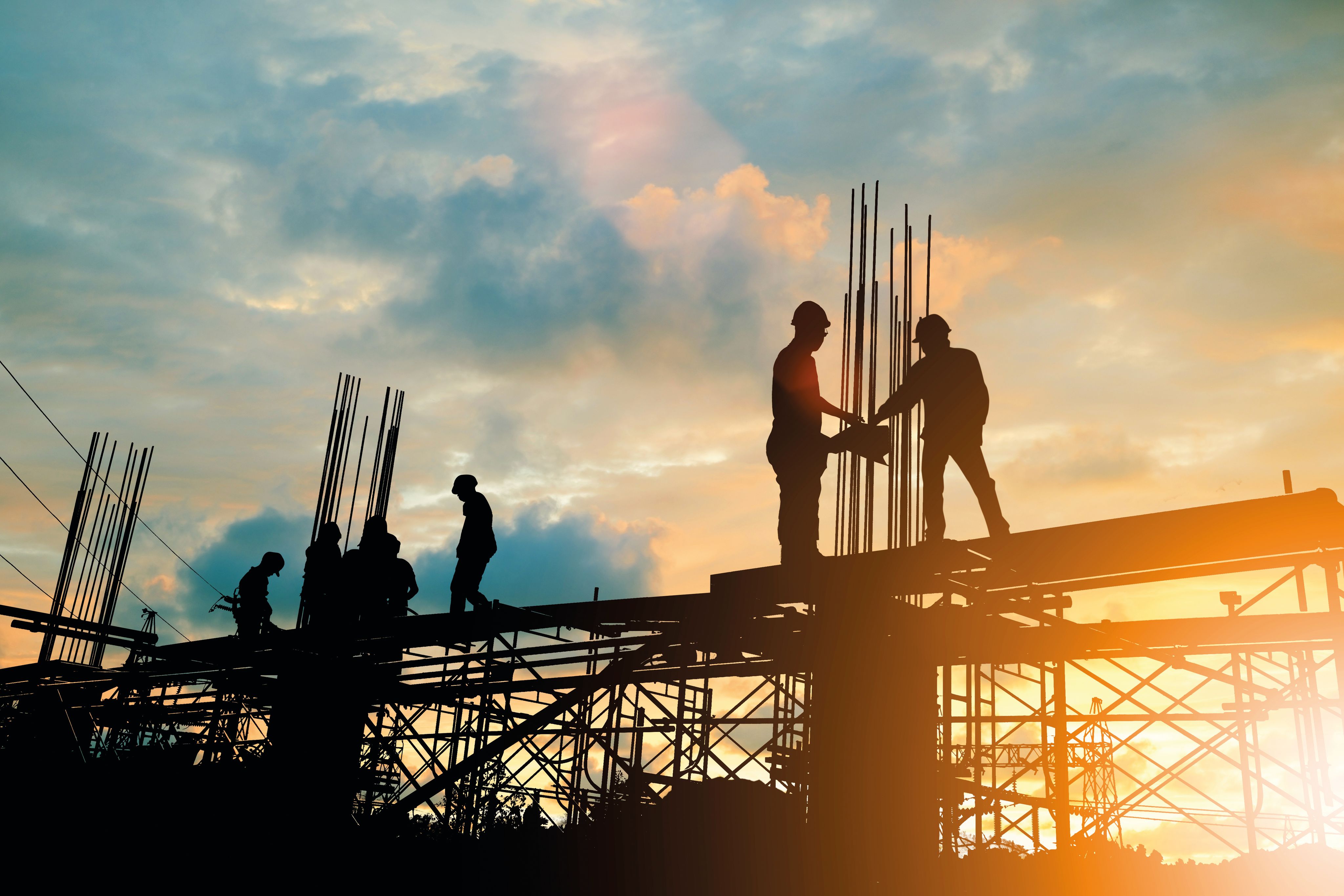
Scaling our impact
Our 2024-2029 strategy will see us build on and learn from our work to date. We will focus our resources across three interconnected priority areas: Safer Maritime Systems; Skilled People for Safer Engineering; and Safer, Sustainable Infrastructure. In addition, we will continue to invest in the Foundation’s own assets and expertise which are our maritime heritage and safety evidence and insight.
Throughout the next five years, we will scale our impact in five ways:
01 Internationalise
Led by local voices, we will make sure that the people who are most impacted by our mission have the strongest say in how they create solutions to make themselves safer.
02 Influencing others to act
Recognising that change comes through others, we will target our resources where we can catalyse change at scale, building strong partnerships and creating compelling communications.
03 Leverage additional resource
We will use our own funding to attract resources from others to keep people safer.
04 A trusted voice in safety
We will find, share and, where needed, commission the best evidence about safety, so that others can act with confidence.
05 Strengthening our voice in the maritime system for the future
The maritime economy is growing rapidly around the world bringing huge risks and opportunities for safety. Because we have a long heritage in maritime, we have the opportunity to strengthen our collective voice to ensure that this growth is safe, sustainable and equitable.
The Foundation's strategic framework
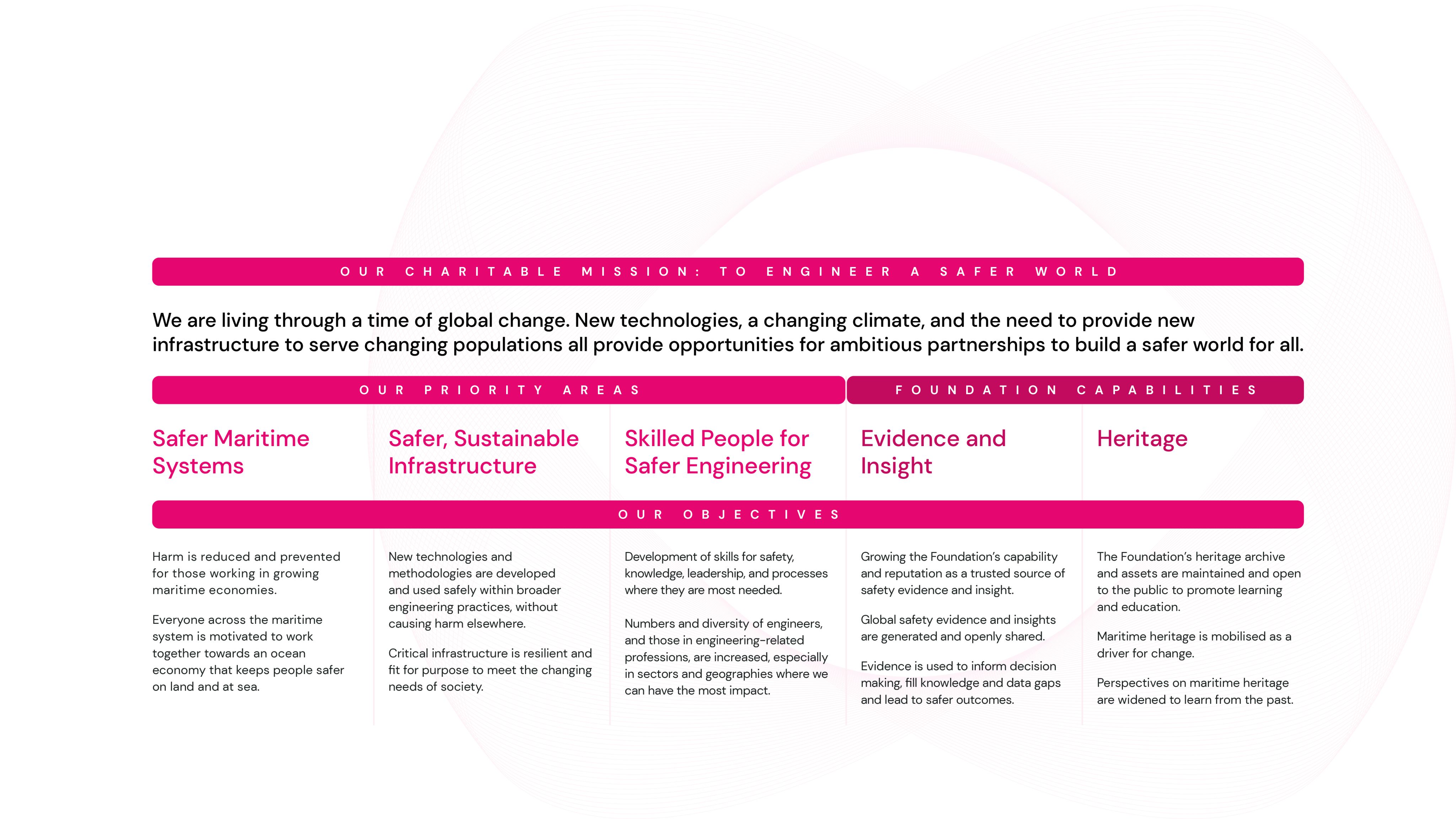

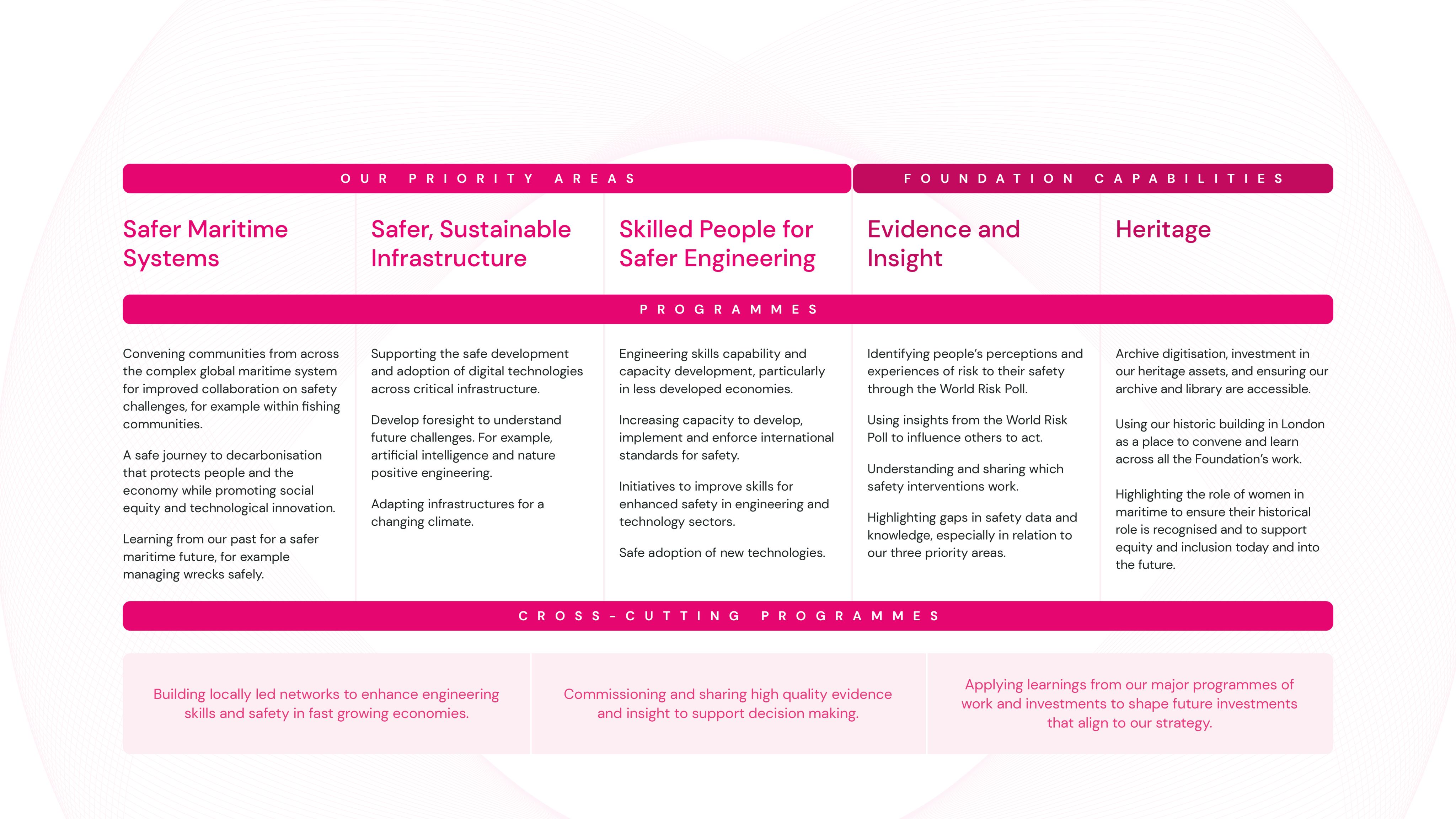
In delivering our strategy we, along with our partners, are responding to common global challenges that demand collective action.
Most notably the decarbonisation of our energy systems; adoption of advanced digital technologies; our need to adapt to a changing climate; and the changes that global population increases place on critical infrastructures, alongside a growing global workforce needing safe and decent work. We will ensure we can scale our impact and make a positive difference across these challenges within our three interconnected priority areas.
01 Decarbonisation
As we decarbonise our energy systems, ensuring the
infrastructures that enable the energy transition are safe for people and the environment.
02 New technologies
Support safety processes, practices, standards and skills so we can be confident in the benefits of new technologies.
03 Adapting to climate change
Safer and more sustainable solutions to industrial
infrastructure both on land and at sea will help us adapt
to climate change.
04 Changing global workforce
Support a skilled and safe workforce including knowledge of what works, preventable measures, and understanding data gaps, and in supporting training and education.
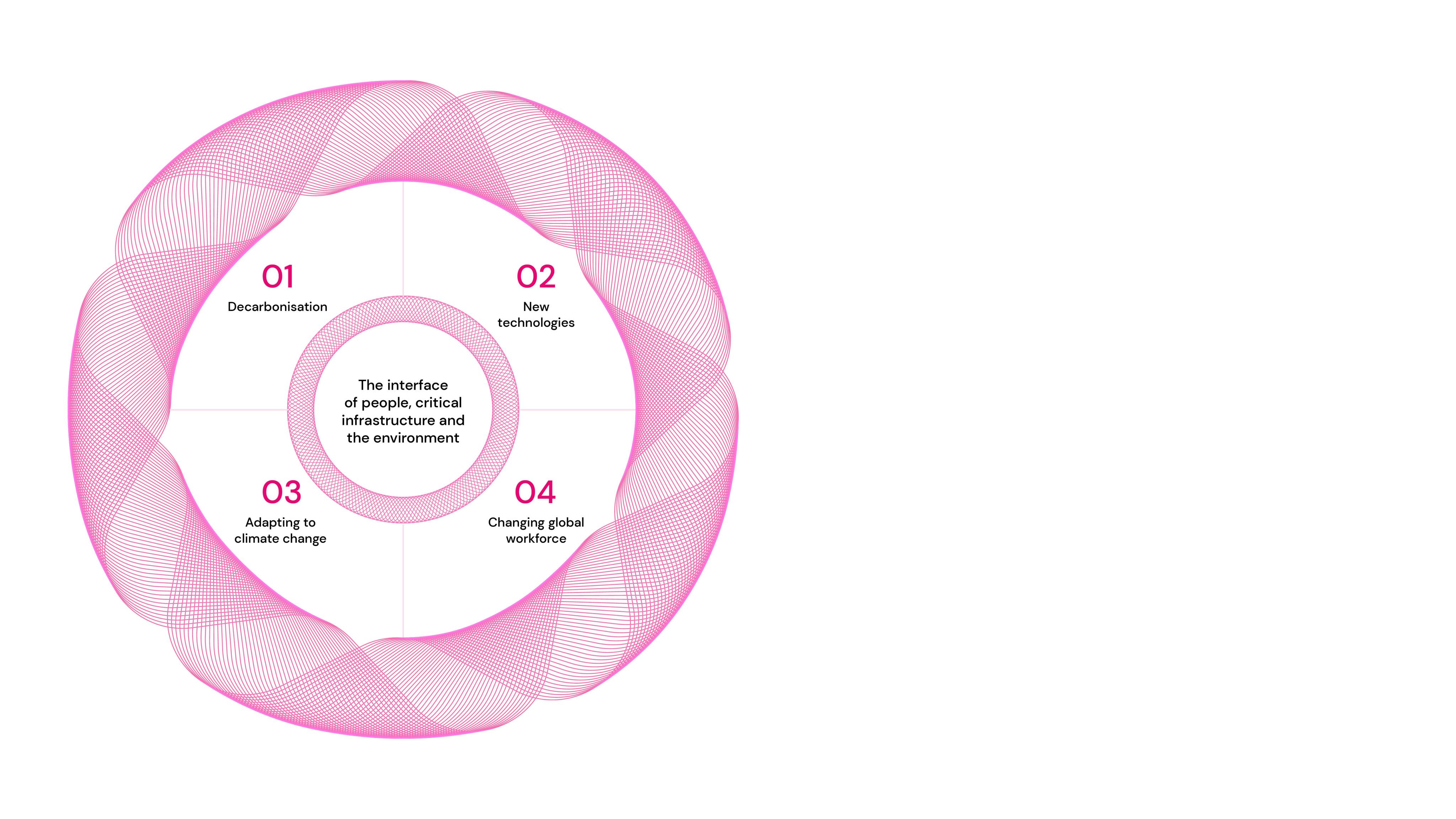
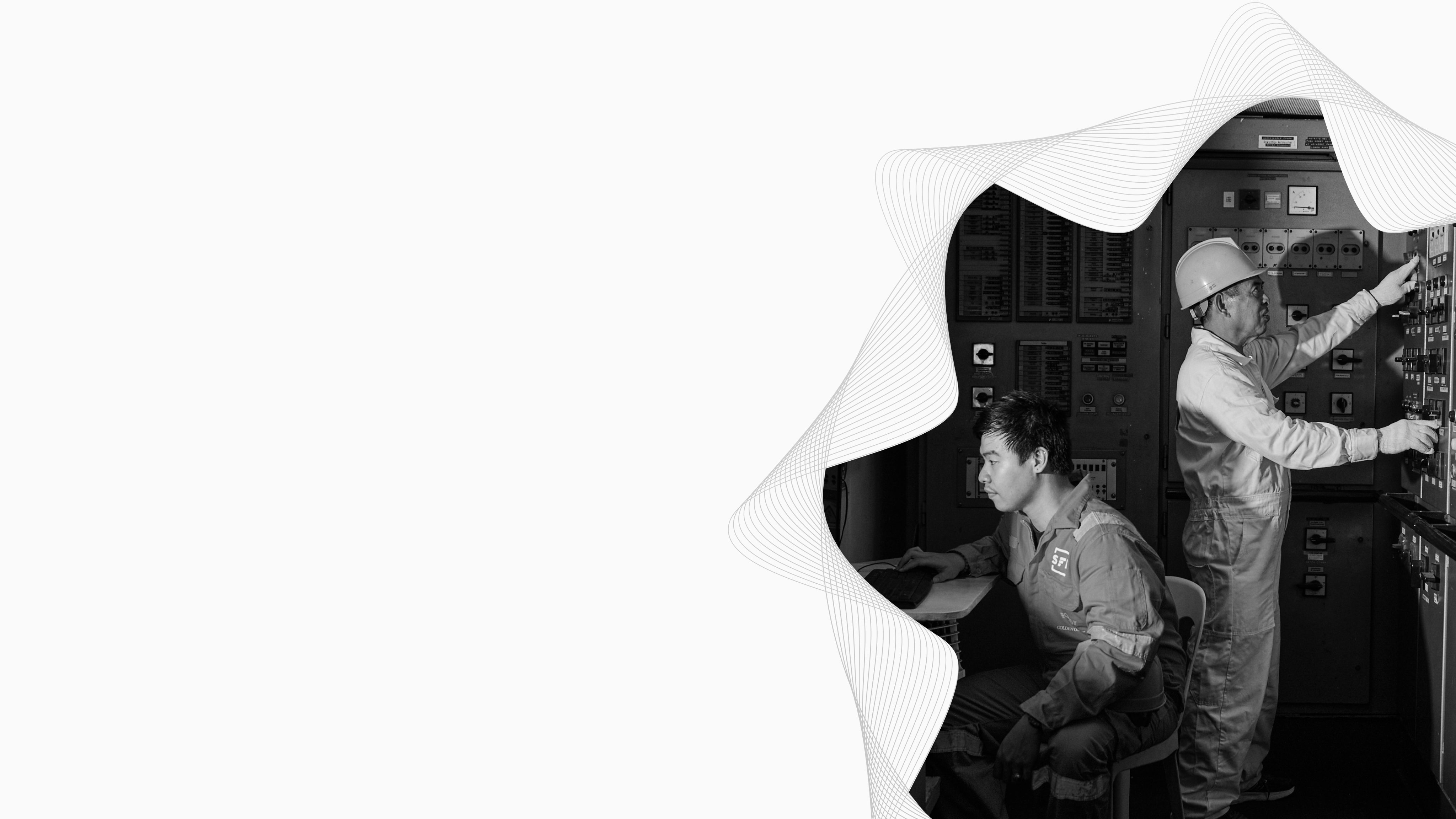
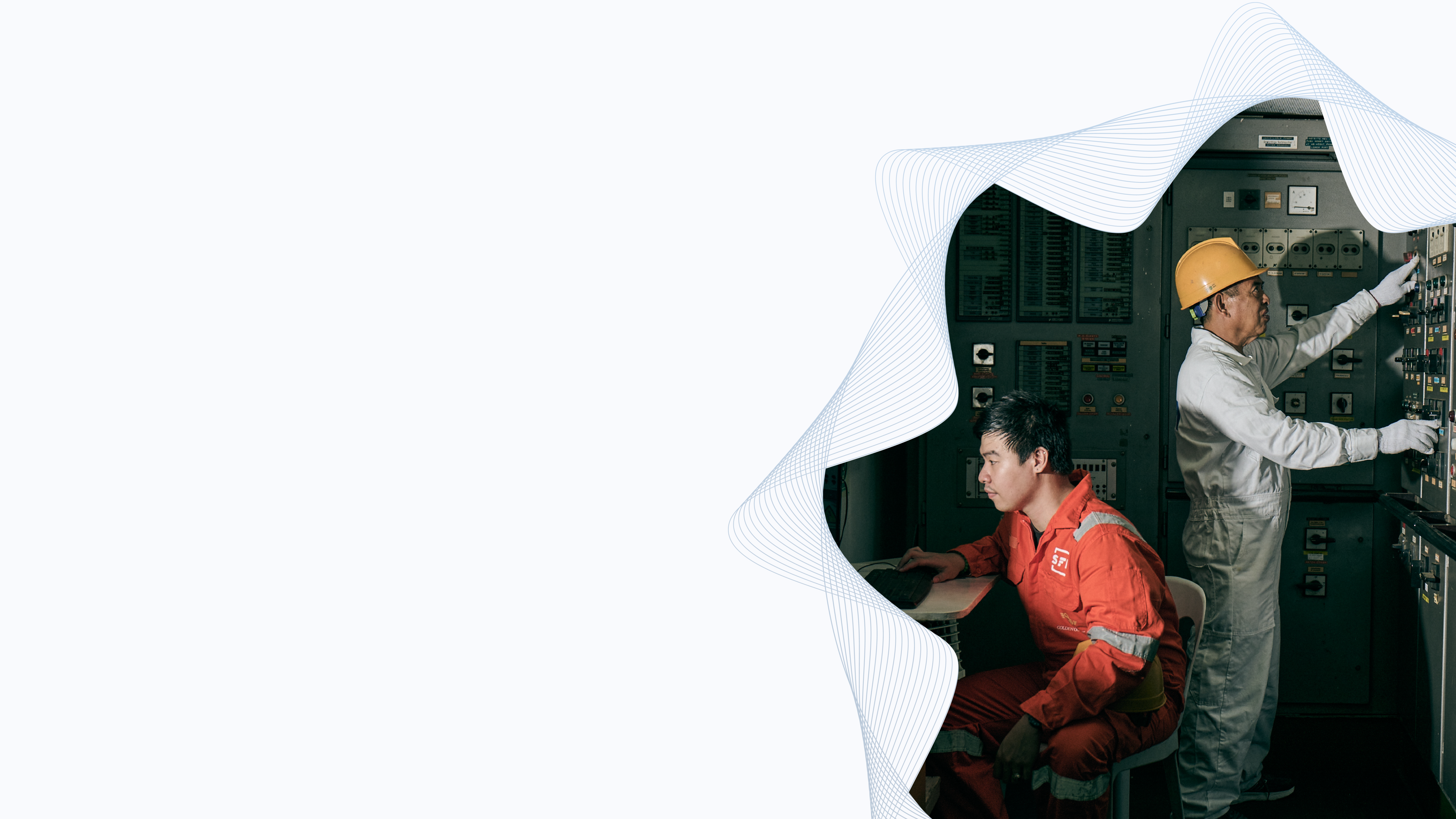
Safer Maritime Systems
Globally, we all rely on the ocean to provide food, energy, and the transit of goods and people. Yet, those who work at sea have some of the most dangerous jobs in the world.
Changing global workforce patterns, the impact of climate change, the energy transition and innovation in technology, all bring both threats and opportunities across a maritime system that is incredibly complex.
People, infrastructures and organisations together have an influence on, and are impacted by, global and local commercial maritime activity such as shipping, ports, regulation, finance, offshore wind, fishing, and aquaculture. Often the unintended consequences of advances made in one industry or location can unintentionally impact other parts of the maritime system.
Our focus
The maritime economy is fragmented, and workers are often informally employed. We will work to bring together diverse and unheard voices to share good practice and perspectives on safety challenges, towards interventions that improve safety and reduce risk to people across the maritime system. We will do this in a number of ways.
We will use the best available evidence and insight and work with those that have a stake in safer maritime systems to make targeted actions that improve safety, particularly in high-risk sectors like fishing, ferries, and seafaring.
We will work with stakeholders from across the maritime system and create partnerships to drive actions around safety risks. These partnerships, alongside the evidence we gather, will accelerate solutions for safer outcomes to the major challenges facing the maritime system, such as decarbonisation, digitalisation, and the impacts of climate change. In addition, Lloyd’s Register Foundation and Lloyd’s Register will continue to collaborate to serve a safer ocean economy.
“Just like the maritime system itself, we cannot scale change unless we work together. This is why developing partnerships to drive change and make a real difference to the safety of people across the maritime system is so important.”
Jan Przydatek
Director of Technologies, Maritime Systems and Future Infrastructure, at Lloyd's Register Foundation
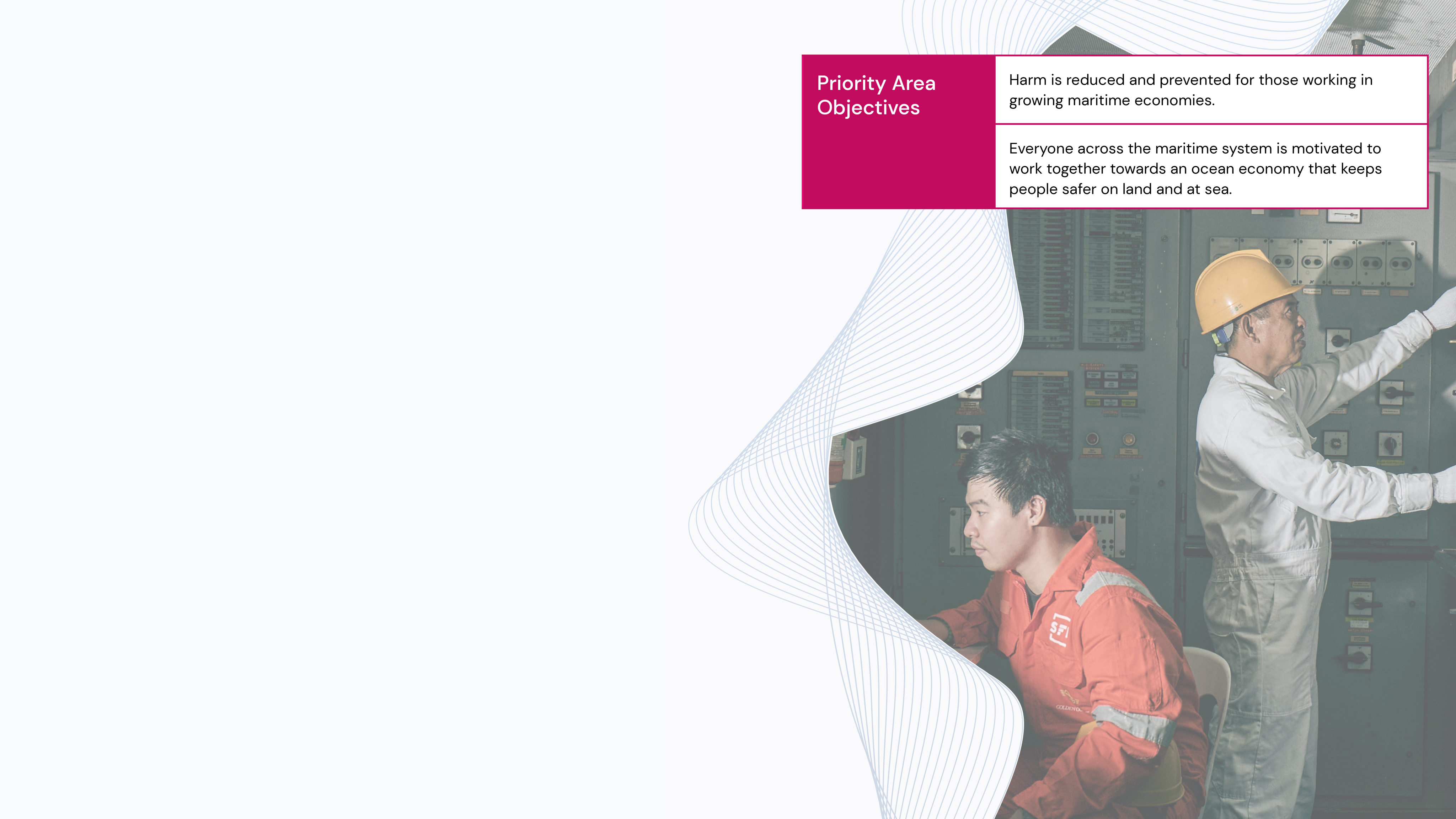

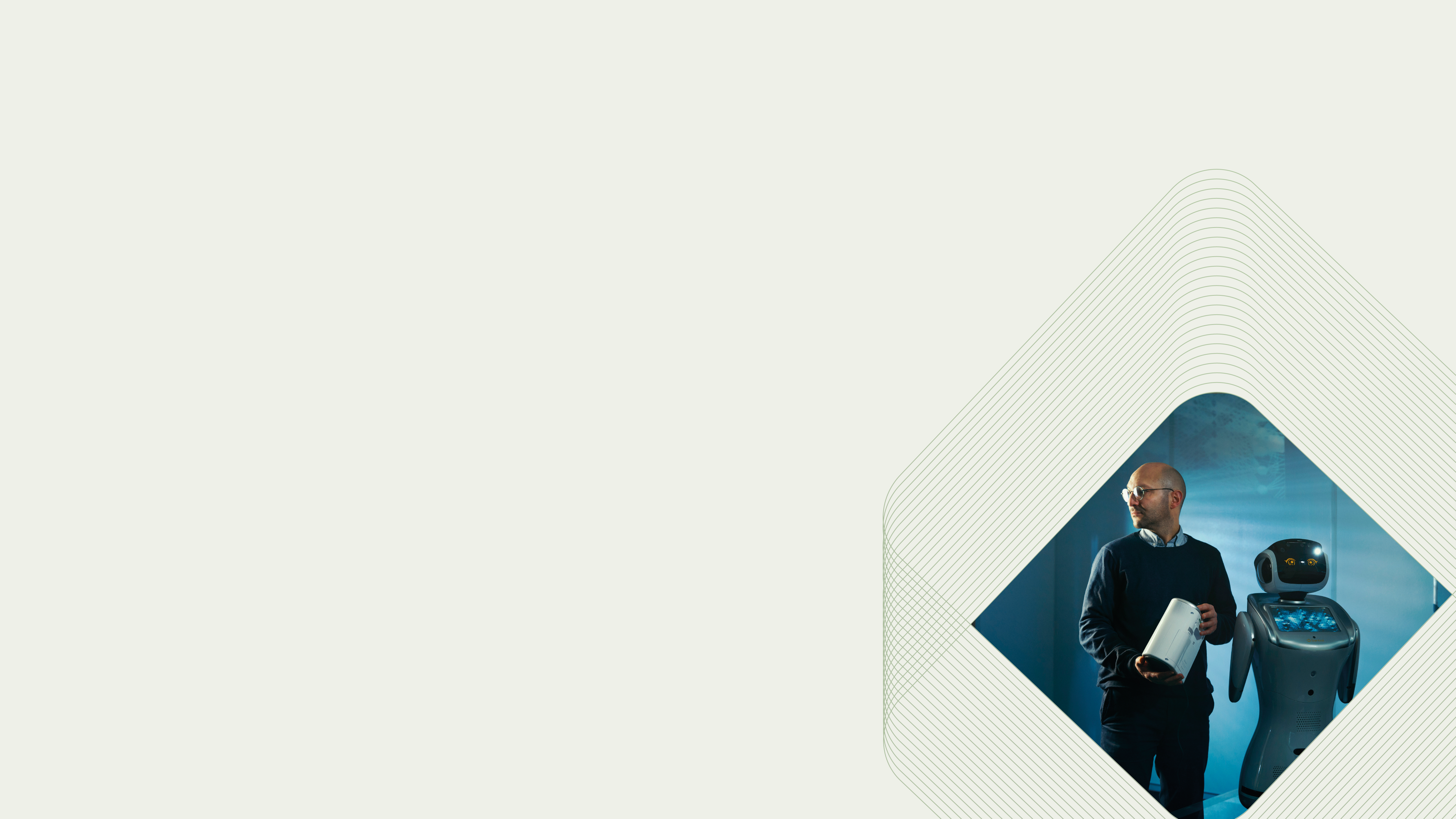
Safer Sustainable Infrastructure
The lives we live today are made possible by the infrastructures that provide us critical services such as energy, manufacturing, and transportation.
As we look to the future, higher temperatures, rising sea levels, and more frequent severe weather patterns all expose vulnerabilities in our infrastructure systems. Artificial Intelligence and autonomy will disrupt how we design, build and operate critical infrastructure. urgent technical, social and physical changes needed to successfully and safely decarbonise our energy systems.
Our focus
A key part of our strategy is to ensure that critical infrastructure is safe, resilient, and sustainable for years to come. The engineering systems that make up these infrastructures are increasingly interconnected so in partnership with others, we will work to ensure that disruptive technologies are adopted safely.
By understanding the technology and the system within which it will be applied, we can influence the steps needed to avoid harm.
In addition, we will focus on working in partnership with others towards the safe decarbonisation of the energy system. This transition relies on significant growth of supporting infrastructures which must be built and operated safely. Plus, we will focus on ensuring critical infrastructures are developed to be resilient to climate change and work with nature.
Through developing partnerships, we can collectively help drive change and make a real difference to managing safety risks, while keeping critical infrastructure resilient.
“Focusing on the increasing deployment of cyber-physical systems, the scaling of sustainable assets and the adaptation of infrastructures to the effects of climate change, our strategy targets safer outcomes for all.”
Jan Przydatek
Director of Technologies, Maritime Systems and Future Infrastructure at Lloyd's Register Foundation
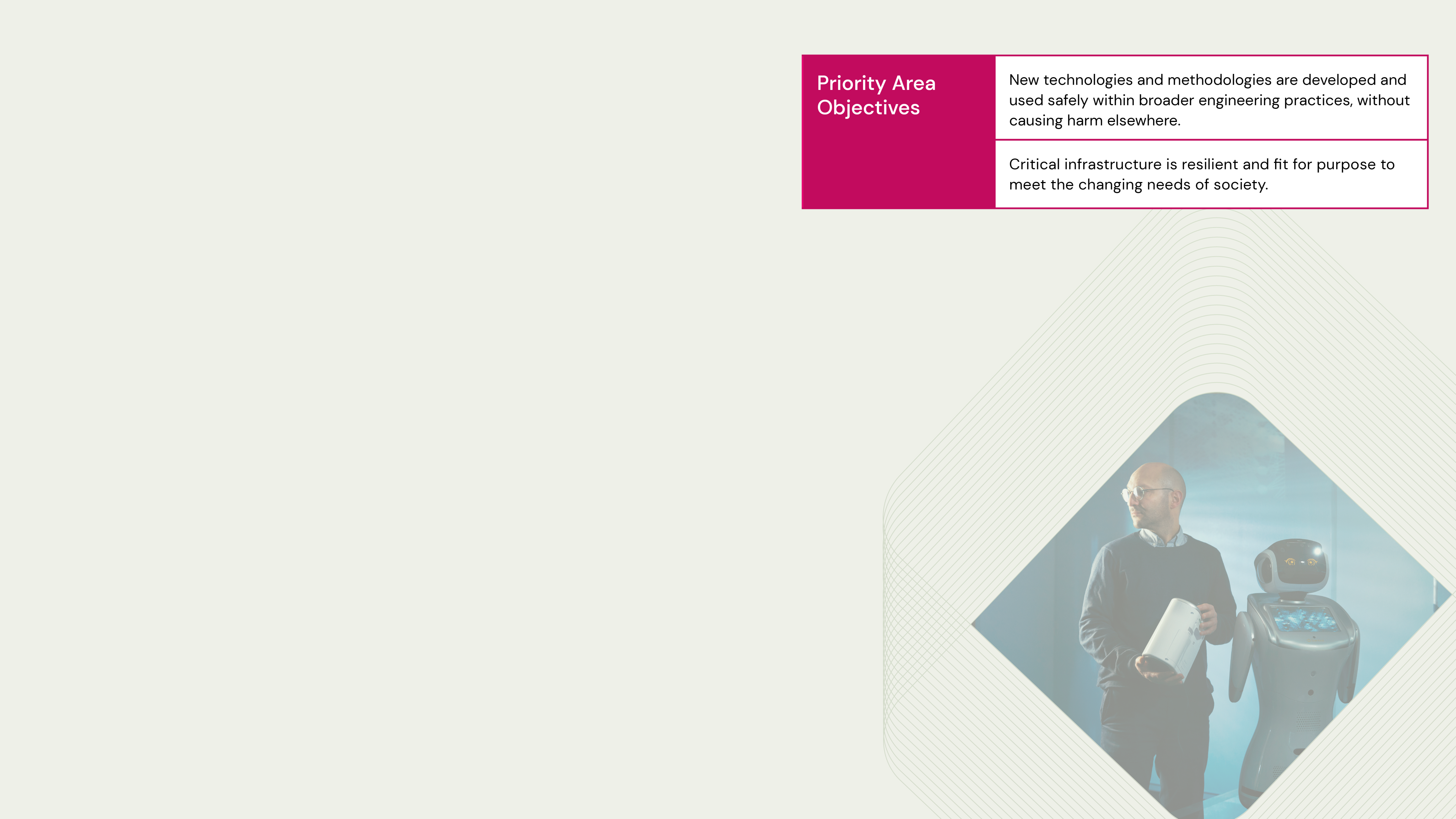
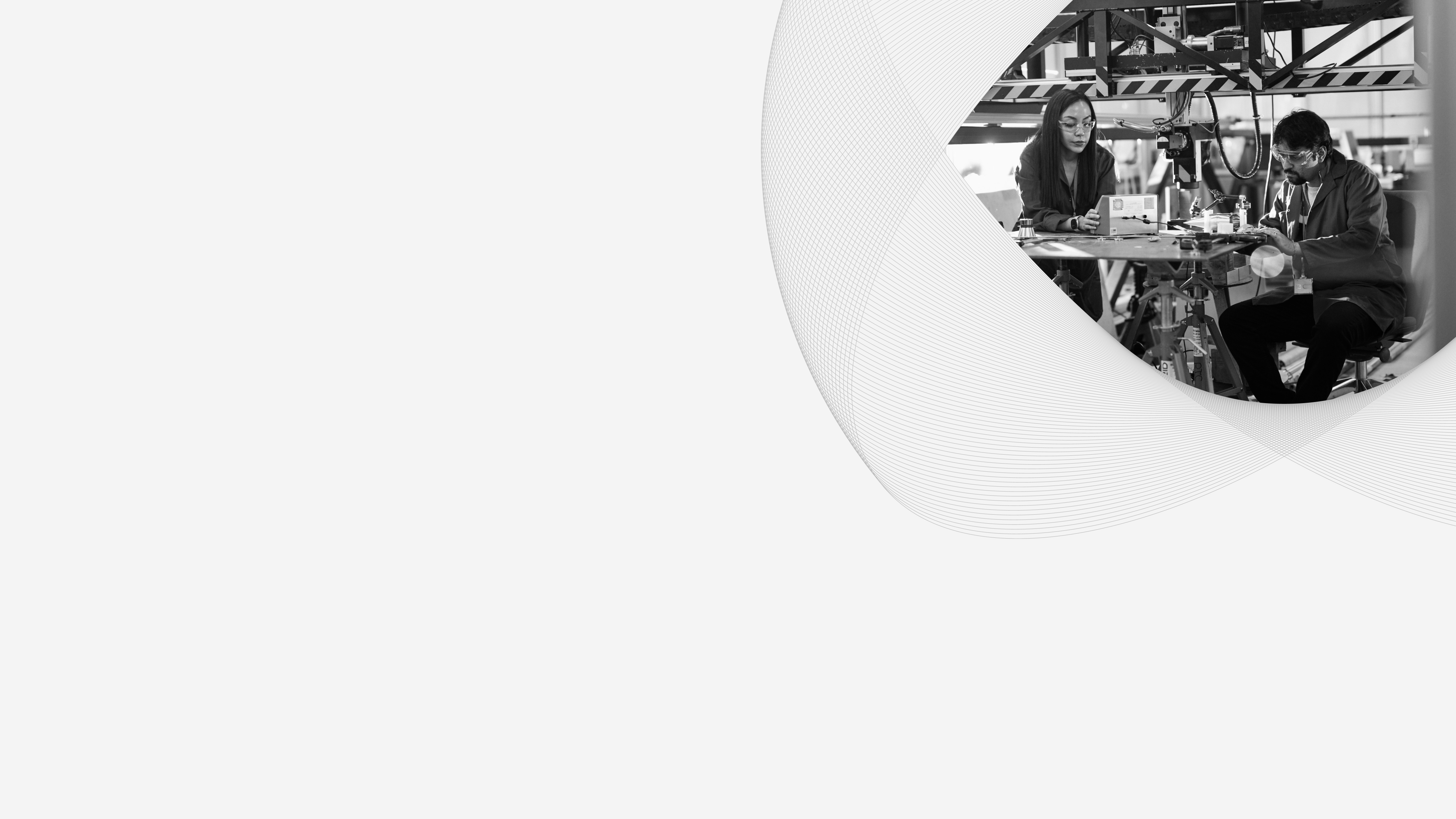
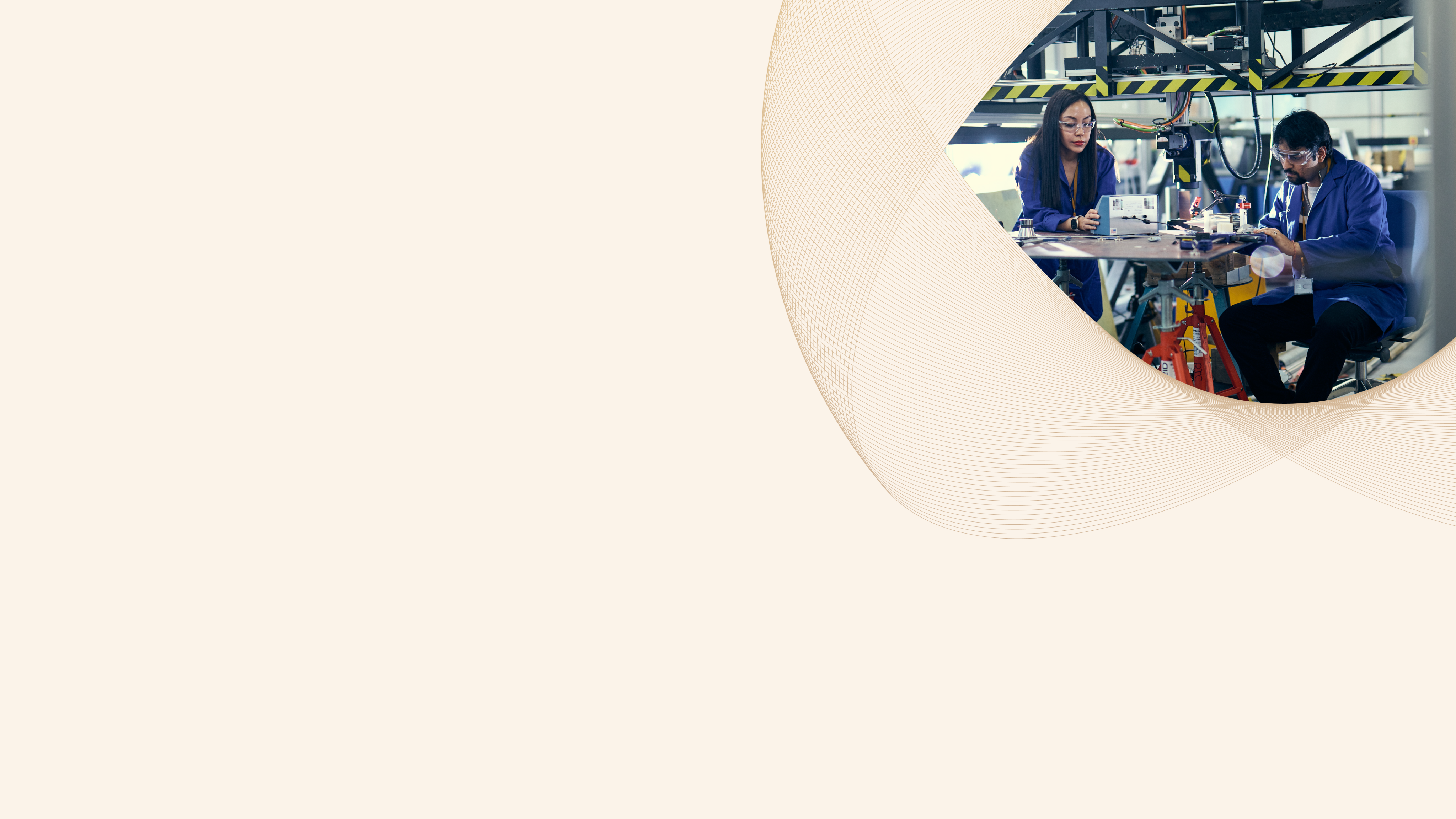
Skilled People for
Safer Engineering
Safe infrastructure needs qualified engineers, and to meet the demands of urbanisation, industrialisation and a rapidly growing population, we need a new approach to engineering
education that has diversity, equity and inclusion at its heart.
Equally, this approach needs to ensure there are safe and decent work opportunities for an engineering workforce that has the capacity, capability and understanding to adopt new and emerging technologies, safely.
Our focus
We are building a global evidence base to understand where engineering capacity and capability are most lacking, helping identify which interventions are most effective to address safety challenges in their local context. We will champion skills initiatives that will support a safe, equitable and just transition to zero-carbon fuels, and we will work with others to develop the capacity to implement and enforce international standards for safety.
Through targeted interventions aimed at better safety outcomes, we will build partnerships that help to remove barriers for new talent and underrepresented demographics to enter the engineering workforce. Plus, we will ensure engineering skills and education develop at a pace that aligns with rapid technological innovation, including robotics and autonomous systems.
In addition, we will fund initiatives that effectively upskill engineers where they are most needed to ensure our built environment remains safe, sustainable and resilient.
“As the global population grows and becomes increasingly urban, we need to build, maintain and operate resilient critical infrastructure on a large scale. But the world is facing an engineering skills shortage. By working in partnership with others we can focus on where engineering capacity and capability are most needed, collectively enhancing the skills that increase people’s safety.”
Tim Slingsby
Director of Skills and Education at Lloyd's Register Foundation
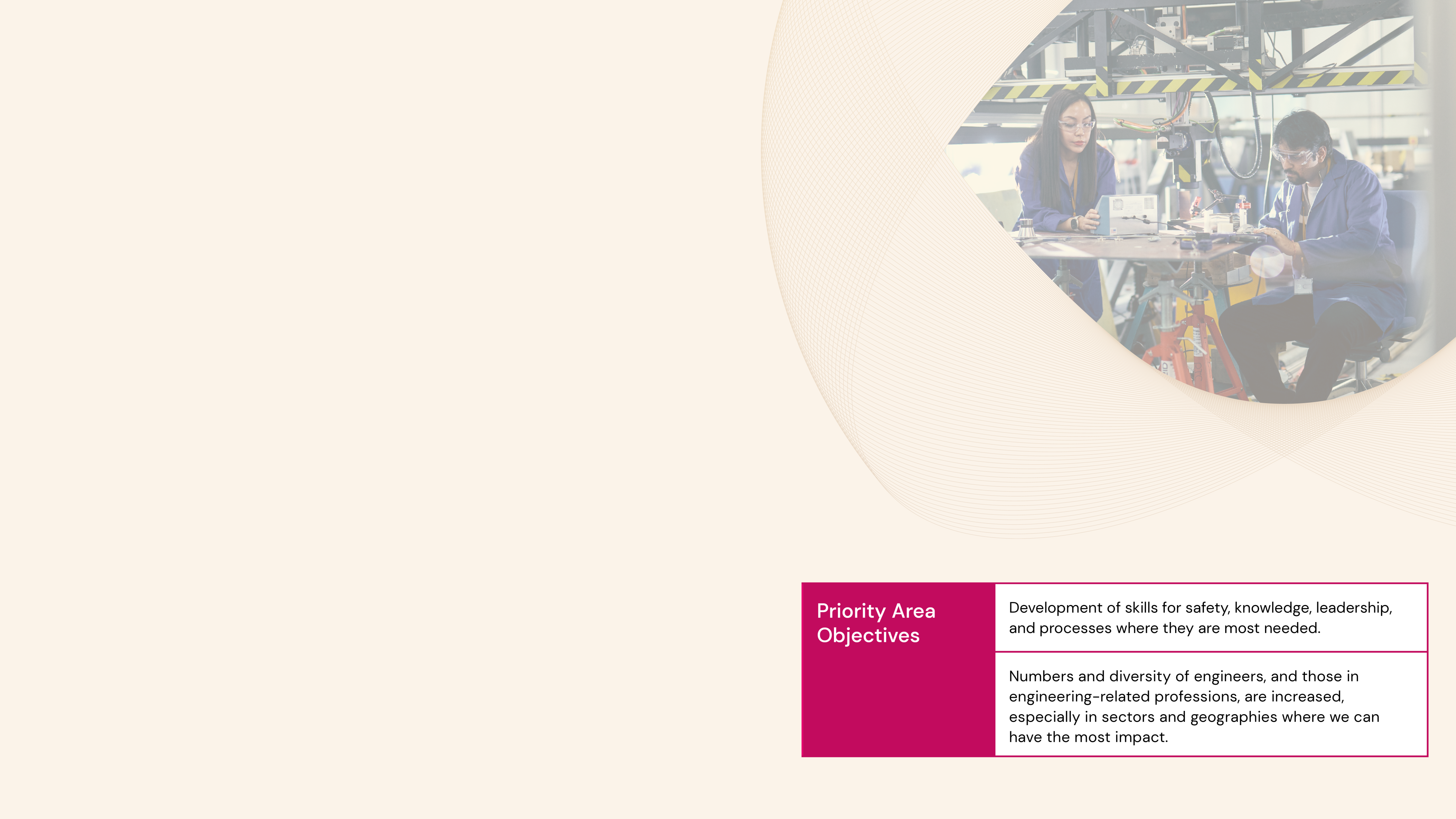


Evidence and Insight
Evidence is critical to improving safety, but often does not yet exist or is not easily accessible. Across the world and in different sectors, there is a huge opportunity to improve safety outcomes by finding, sharing and growing better quality evidence on both the scale and nature of the challenges, and on what works, to address them.
But simply finding and generating that evidence is not enough – it must also be relevant, understandable, accessible, and actionable by those in a position to put it into practice.
Our focus
To support us in delivering impact across our new strategy’s priority areas we will take an evidence-led approach. Whether it is in the maritime sector, on critical infrastructure, or building skills and education, we have a commitment to find, share and grow more robust evidence to better understand the complex factors that affect safety.
Taking this commitment one step further, we are working towards the establishment of a Global Safety Evidence Centre, which will serve as a ‘one-stop-shop’ for anyone who needs to know ‘what works’ to make people safer – collating the best evidence from our partners and other sources, as well as providing a home for the Foundation’s own evidence outputs, such as our flagship World Risk Poll, which is the first and only global study of worry about, and harm from, risks to people’s safety.
“Evidence is key to improving safety, yet it is often limited, fragmented or hard to access. By finding, sharing and growing evidence that is robust, trusted and accessible, we can help people in all sectors make confident and effective decisions to create safer environments and tackle challenges with informed, practical solutions.”
Nancy Hey
Director of Evidence and Insight at Lloyd's Register Foundation
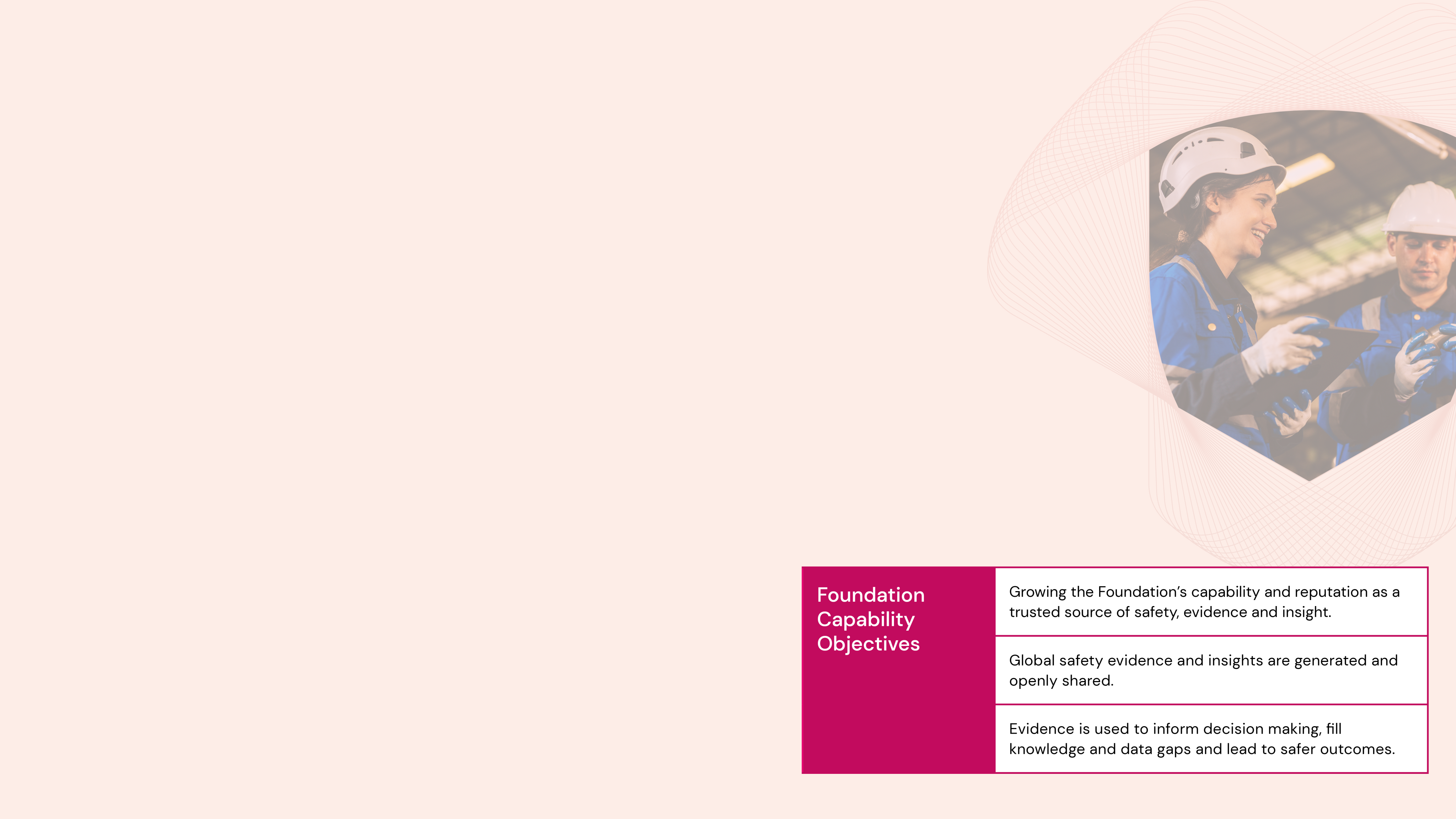


Building on
Lloyd's Register's Heritage
For more than 250 years, Lloyd’s Register has been ensuring
that ships, their crews and cargoes are safe to go to sea. This puts us in a unique position to be able to learn from the past to inform, inspire and shape a safer, more sustainable, and resilient ocean economy.
Our focus
The Lloyd’s Register Foundation archive is a unique research resource which offers a unique perspective on the evolution of maritime safety and the complex factors that drive this process.
Our collection over 1.1 million documents shows the construction, maintenance and development of ships and maritime trade from the 1830s, and is freely available to all, both on-line and in-person at our new heritage centre.
Our heritage team works with a diverse range of partners across the globe to unlock both the value of this archive and supporting a ‘learning from the past’ approach to maritime safety and sustainability challenges more broadly.
“Our maritime heritage enables us to support the Foundation’s wider strategy to keep people safer. By unlocking historical insights, we can deepen our understanding of present and future challenges across the maritime sector and help to build a safer, more sustainable, and resilient ocean economy for generations to come.”
Alex Stitt
Director of Heritage and Education at Lloyd's Register Foundation
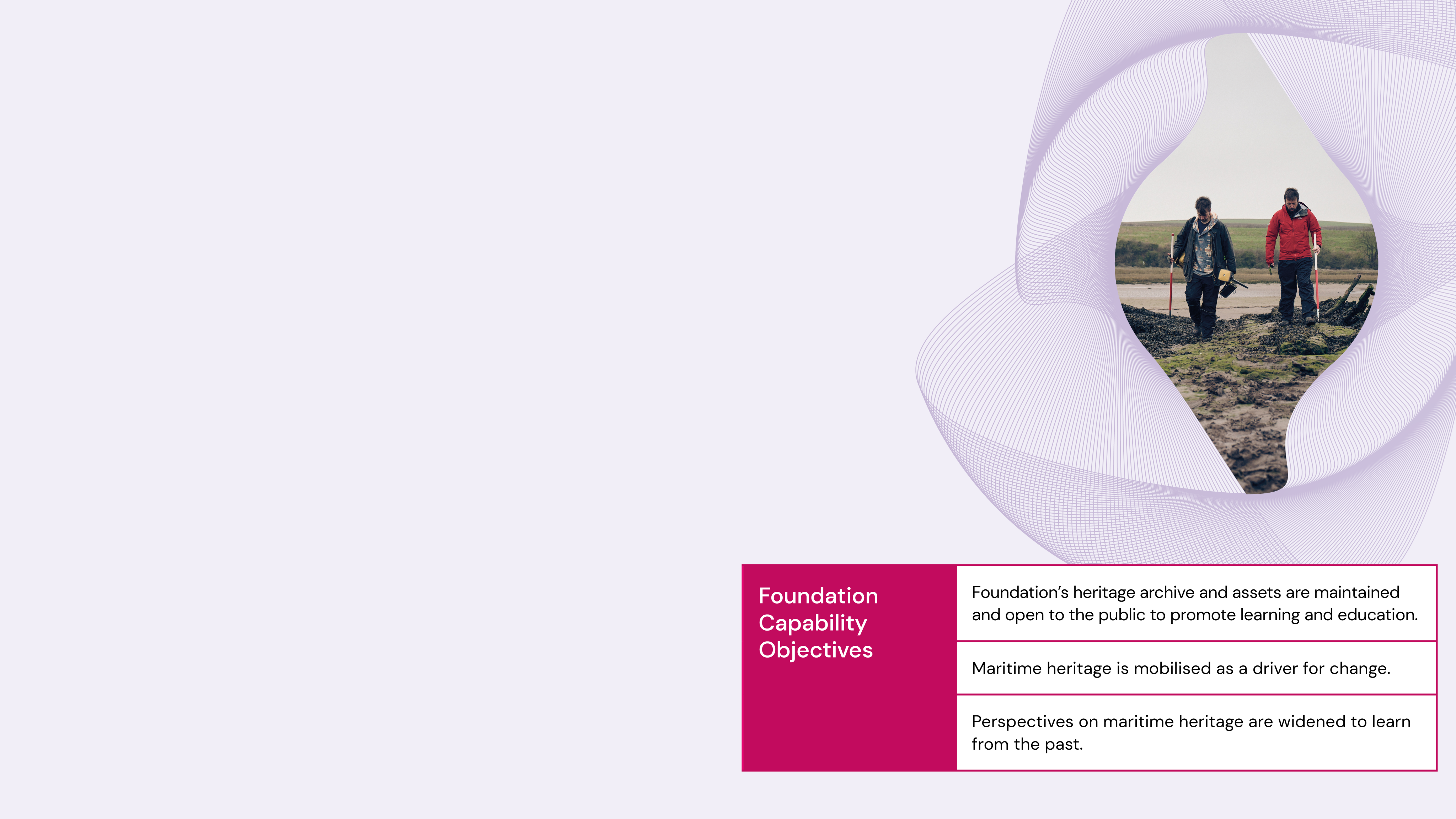
Our global partnerships and impact
In 2019, the Foundation provided funding to the Royal Academy of Engineering to help establish Engineering X. Active in over 35 countries, Engineering X is a growing collaboration that promotes the role of engineering in tackling safety and sustainability challenges by building global connections across sectors and disciplines.
The International Congress of Maritime Museums (ICMM) programme, ‘Global Maritime Histories: Case Studies for Change’, builds connections with cultural heritage organisations around the world, harnessing rich collections
and local networks, to deliver new perspectives on global safety and sustainability challenges in the maritime economy, enabling local voices to speak in a global context.
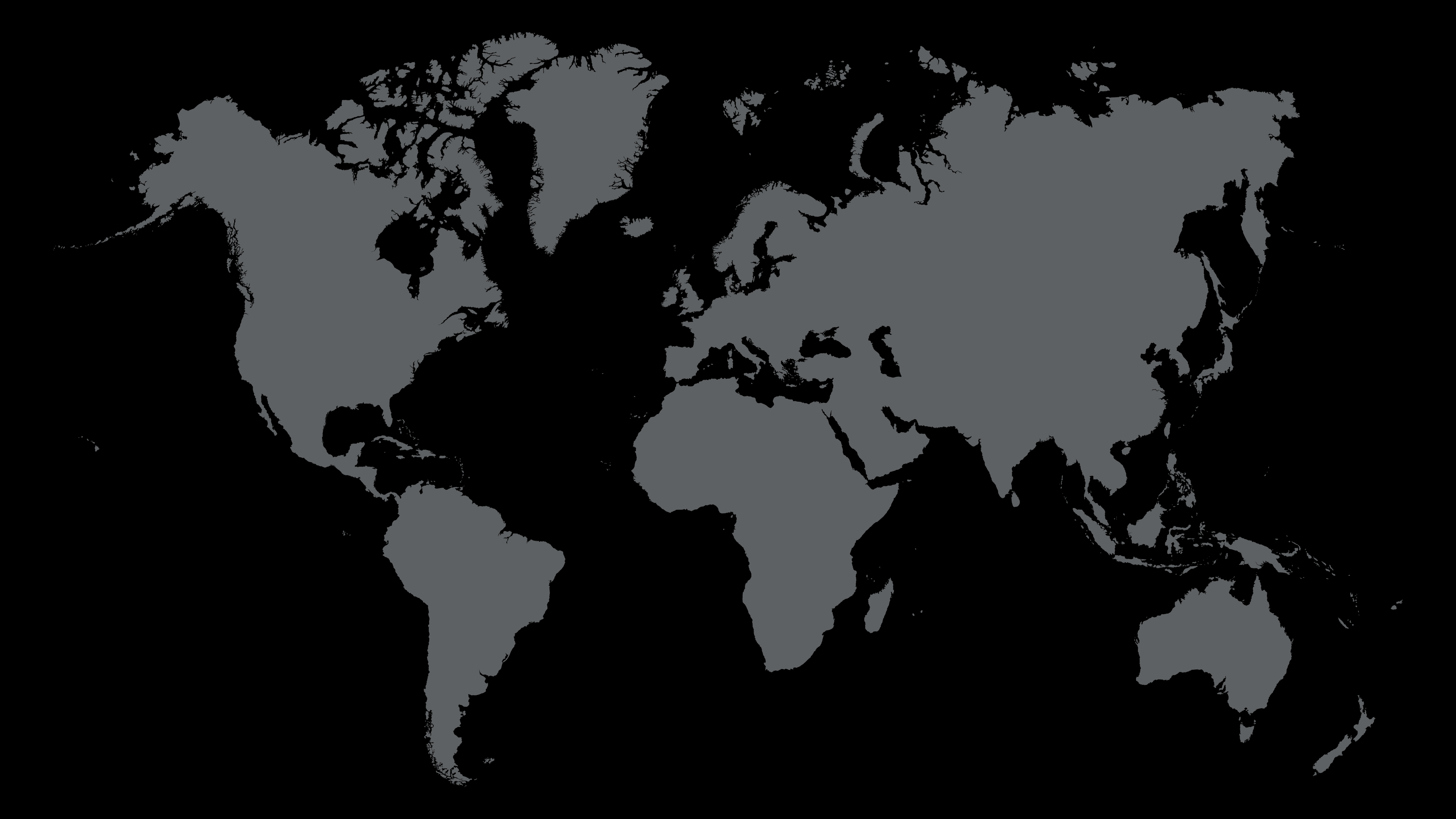
Work with us
We would love to hear what you think about our strategy and how we can work together.
Lloyd's Register Foundation
Copyright ©Lloyd’s Register Foundation, 2024.
Lloyd’s Register Foundation is a registered charity
(Reg. no. 1145988) and limited company (Reg. no. 7905861)
registered in England and Wales, and owner of Lloyd’s Register Group Limited.
Registered Office:
71 Fenchurch Street, London, EC3M 4BS, United Kingdom
T +44 (0)20 7709 9166
F +44 (0)20 7488 4796
E info@lrfoundation.org.uk

